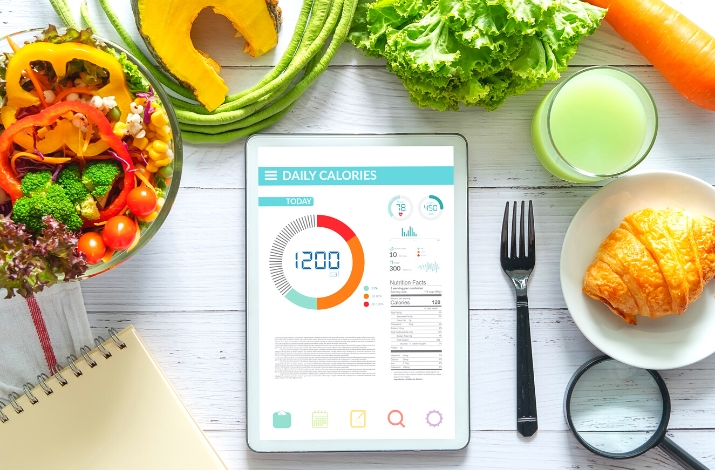How food impacts our bodies is about more than the food itself. Here are the factors that can lead to varied glucose responses from the same foods.
Here are 10 key reasons why you might see different glucose patterns day to day or month to month, even when you’re eating the exact same thing:
The time of day
1. Your sleep the night before
2. Your stress level
3. When you last exercised, and how hard
4. Your menstrual cycle and hormonal fluctuations
5. Your current gut microbiome
6. Medications you’re taking
1. The time of day
Believe it or not, when you eat can be just as important as what you eat. Our bodies have an internal clock, known as the circadian rhythm, that regulates various processes, including glucose metabolism and insulin sensitivity. Research shows that our insulin sensitivity is typically highest in the morning and decreases as the day progresses.
In one study, healthy adults who ate the same meal at 10 pm experienced an 18% higher blood sugar spike than when they ate it at 6 pm. This result suggests that consuming larger meals earlier in the day when our bodies are better equipped to handle glucose may benefit blood sugar control.
2. Your sleep the night before
A good night’s sleep is essential for many aspects of health, including blood sugar regulation. Even short-term sleep deprivation can lead to increased insulin resistance and impaired glucose tolerance. One study found that after just six nights of sleeping four hours per night, healthy young men had metabolic profiles similar to those seen in people with prediabetes. Another recent study found that even poor quality sleep or varying your bedtime can impact glucose response the next day.
Poor sleep is thought to disrupt the balance of hormones like cortisol, growth hormone, and ghrelin, which can contribute to higher glucose levels and reduced insulin sensitivity. Prioritizing consistent, high-quality sleep is crucial for maintaining stable blood sugar.
3. Your stress level
Stress can also wreak havoc on your blood sugar. When you’re under stress, your body releases hormones like cortisol and adrenaline, which can cause your blood sugar to rise. This effect surprises many Levels members who puzzle over an unexpected spike, only to realize they had just had a tough talk with their boss, or given a presentation, or gotten stuck in traffic. (Even a cup of coffee can raise cortisol levels for some people, which can increase glucose.)
Chronic stress can also lead to insulin resistance over time, making it harder for your cells to respond to insulin and remove glucose from your bloodstream. If you’re seeing changes in your response over a long period, ask yourself if you’re in a prolonged state of higher stress now than before.
4. When you last exercised, and how hard
Exercise is a powerful tool for improving insulin sensitivity and glucose control, but the timing of your workouts can influence your glucose response.
When you exercise, your muscles become more sensitive to insulin and increase glucose uptake from the bloodstream. This effect can persist for several hours post-workout. So, if you ate a meal and then went for a brisk walk or did a quick strength training session, you might see a gentler glucose response than eating the same meal and remaining sedentary.
5. Your menstrual cycle and hormonal fluctuations
For women, hormonal changes throughout the menstrual cycle can influence insulin sensitivity and glucose metabolism. Insulin resistance tends to be higher during the luteal phase (the second half of the cycle) compared to the follicular phase (the first half).
This means that eating the same meal during different phases of your cycle could yield different glucose responses. Hormonal shifts during perimenopause and menopause can also impact blood sugar control.
6. Your current gut microbiome
The trillions of bacteria living in your gut are crucial to metabolic health. An imbalance or lack of diversity in the gut microbiome has been linked to impaired glucose control and insulin resistance.
Certain beneficial bacteria produce short-chain fatty acids (SCFAs) that help regulate glucose metabolism and improve insulin sensitivity. If your microbiome is disrupted, perhaps due to stress, illness, or a course of antibiotics, you may see different glucose responses to your usual meals. Supporting your gut health through a diverse, fiber-rich diet and other lifestyle factors can help promote more consistent blood sugar control.
7. Medications you’re taking
Certain medications can directly impact blood glucose levels, leading to unexpected spikes or drops. Corticosteroids can impair insulin synthesis and stimulate glucose production, resulting in elevated blood sugar. Beta-blockers may reduce insulin sensitivity by interacting with pancreatic nerve cells. Antipsychotics can interfere with appetite-regulating neuropeptides, leading to overeating and weight gain, and may also affect insulin secretion and sensitivity. Antibiotics may disrupt the balance of short-chain fatty acids in the gut, which play a role in glucose regulation. Some birth control can raise glucose sensitivity, and medications like Adderall may raise glucose itself.
If you’re taking medications and notice unusual glucose responses, discuss your concerns with your healthcare provider. They can help you weigh the benefits and risks of your treatment plan and make adjustments if necessary.
Why these factors impact your Glucose Responses
Your glucose response depends mainly on your current levels of insulin sensitivity—the body’s ability to respond effectively to the hormone insulin. When you eat carbohydrates, your body breaks them down into glucose, which enters your bloodstream. In response, your pancreas releases insulin, which acts like a key to unlock your cells and allow glucose to enter, where it can be used for energy or stored for later.
However, if your body becomes less sensitive to insulin (insulin resistant), glucose can’t enter your cells as easily, leading to higher blood sugar levels. This is where the factors mentioned above come into play. For example, sleep deprivation has decreased insulin sensitivity by altering the balance of hormones like cortisol and growth hormone, which can interfere with insulin signaling.
Stress also plays a role in insulin resistance. When you’re under stress, your body releases cortisol, reducing insulin sensitivity and prompting your liver to release more glucose into your bloodstream. Over time, chronic stress can lead to persistently elevated cortisol levels, contributing to long-term insulin resistance.
Other hormones and physiological processes can also impact glucose metabolism:
Glucagon: Produced by the pancreas, glucagon works opposite to insulin, promoting the release of glucose from the liver into the bloodstream. An imbalance in the ratio of insulin to glucagon can contribute to high blood sugar.
Incretins: These gut hormones, including glucagon-like peptide-1 (GLP-1) and glucose-dependent insulinotropic polypeptide (GIP), stimulate insulin secretion and reduce glucagon release in response to eating. Impaired incretin function has been linked to insulin resistance and Type 2 diabetes.
Inflammation: Chronic low-grade inflammation, caused by factors like obesity, poor diet, and sedentary behavior, has been shown to contribute to insulin resistance by interfering with insulin signaling pathways.
The Bottom Line
If you’ve ever been puzzled by a glucose spike after eating a meal that usually yields a gentler response, remember that many factors beyond food composition can influence your body’s glucose control. Meal timing, sleep, stress, exercise, hormones, gut health, and individual characteristics all play a role, mainly by impacting insulin sensitivity and other physiological processes involved in glucose metabolism.






